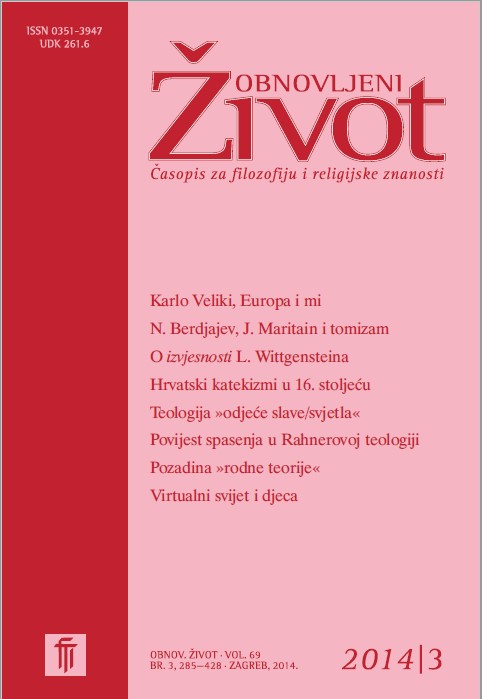Croatian Catechisms during the 16th Century Tridentine Renewal
Keywords:
Catechism, Christian teaching, Council of Trent, Catholic reform, JesuitsAbstract
The Council of Trent had major reverberations in Croatia by virtue of the Catechisms printed for the needs of the clergy and the Christian populace. The era of the Catechism in Croatia began in Dubrovnik in 1576 when»Nauk karstianski« by Diego Ledesma was printed in Venice for the needs of the youth and which soon thereafter was reprinted twice. It was followed by the Croatian translation of Augustine Valier’s, Bishop of Verona,»Nauk katolički od svete vjere« in 1578. The Canon of Split, Aleksandar Komulović, published in Rome in 1582 the first original Croatian Catechism»Nauk karstianski za slovinski narod« for the needs of Catholics in Bosnia. At the request of the Zadar Synod of Bishops (1579) the»Summa nauka karstianskoga« by the Jesuit Peter Canisius was translated by Šimun Budinić into the Latin script and the agreed–upon Cyrillic script and was printed in Rome in 1583. The most widely distributed Catechism of the time, written by Cardinal Robert Bellarmin in 1597, was translated by A. Komulović and published for the first time in 1603 in Croatian as»Nauk karstianski kratak«. All of the above demonstrates that, as regards Catechisms, the Croats of the 16th century were on the same level as large European nations. This paper has confined itself to only the 16th century and proposes to portray in one place, chronologically and systematically, all Catechisms ever printed in the Croatian language up to the end of that century: their authors and translators, linguistic nuances, printedness in different scripts being used on Croatian soil, their content, method and fate. To this end, existing studies were used as also personal research by the author.
Downloads
Published
Issue
Section
License
Jednom prihvaćeni članak obvezuje autora da ga ne smije objaviti drugdje bez dozvole uredništva, a i tada samo uz bilješku da je objavljen prvi put u Obnovljenom životu. Uredništvo će obavijestiti autora o prihvaćanju ili neprihvaćanju članka za objavljivanje.
Članci objavljeni u časopisu se, uz prikladno navođenje izvora, smiju besplatno koristiti u obrazovne i druge nekomercijalne svrhe.


